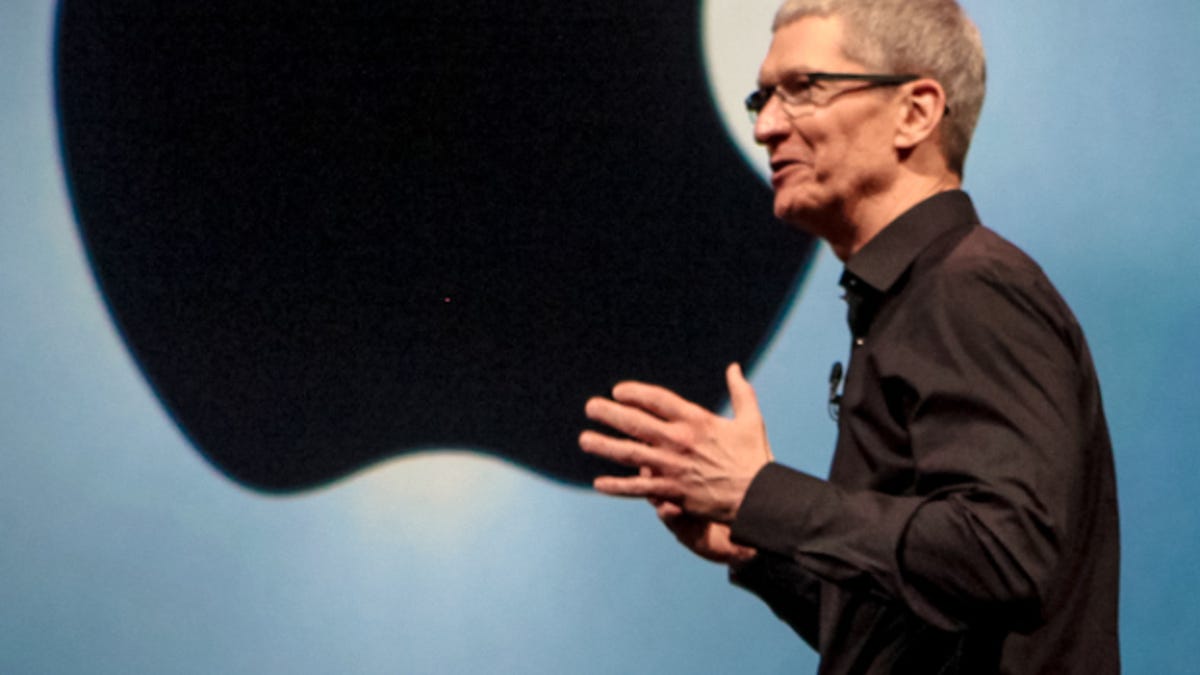Apple dodged paying billions in taxes, subcommittee says
A senate panel releases a lengthy report detailing how the tech company used offshore corporate structures to avoid paying billions in U.S. taxes.

On the eve of Apple CEO Tim Cook's hearing in front of the Senate's Permanent Subcommittee on Investigations, the subcommittee released a report Monday detailing how it believes the tech giant has avoided paying its fair share of U.S. taxes.
"Apple is an American success story," the report reads. "Today, Apple Inc. maintains more than $102 billion in offshore cash, cash equivalents and marketable securities (cash). Apple executives told the Subcommittee that the company has no intention of returning those funds to the United States unless and until there is a more favorable environment, emphasizing a lower corporate tax rate and a simplified tax code."
The subcommittee, which is led by Sens. Carl Levin and John McCain, has been conducting a lengthy investigation into Apple's alleged tax-avoidance strategies. With its success, Apple has come under scrutiny. The company has earned a $145 billion pile of cash -- more than $100 billion of which is held outside the U.S. To bring it back into the country, Apple would face up to a 35 percent corporate tax rate.
In its report, the subcommittee notes that Apple has creatively set up corporate structures in various countries that let it act as a resident of nowhere; therefore, the company gets to pay barely any or no corporate taxes on its international revenue. In fact, one of Apple's subsidiaries, Apple Operations International, hasn't paid corporate taxes for the last five years even though it earned $29.6 billion from 2009 to 2012, according to the Senate panel.
Apple "has used a variety of offshore structures, arrangements, and transactions to shift billions of dollars in profits away from the United States and into Ireland, where Apple has negotiated a special corporate tax rate of less than 2 percent," the report says. "One of Apple's more unusual tactics has been to establish and direct substantial funds to offshore entities that are not declared tax residents of any jurisdiction."
For its part, Apple also released testimony on Monday that it plans to present to the subcommittee on Tuesday. This testimony details how and where the company pays its corporate taxes and also outlines how it believes the U.S. should simplify its corporate tax system. Apple pitches itself as a job creator, and it notes that it was likely the largest income tax payer in the country last year, paying out "nearly" $6 billion.
"These payments account for $1 in every $40 in corporate income tax the U.S. Treasury collected last year," Apple said in its statement.
Apple is just one of several companies being investigated by the subcommittee. Last September the group spoke with Microsoft and Hewlett-Packard. Tuesday's hearing involves Cook, along with Apple CFO Peter Oppenheimer and Apple's head of tax operations Phillip Bullock.
When contacted by CNET for comment, an Apple spokesperson directed CNET to its testimony published Monday.

